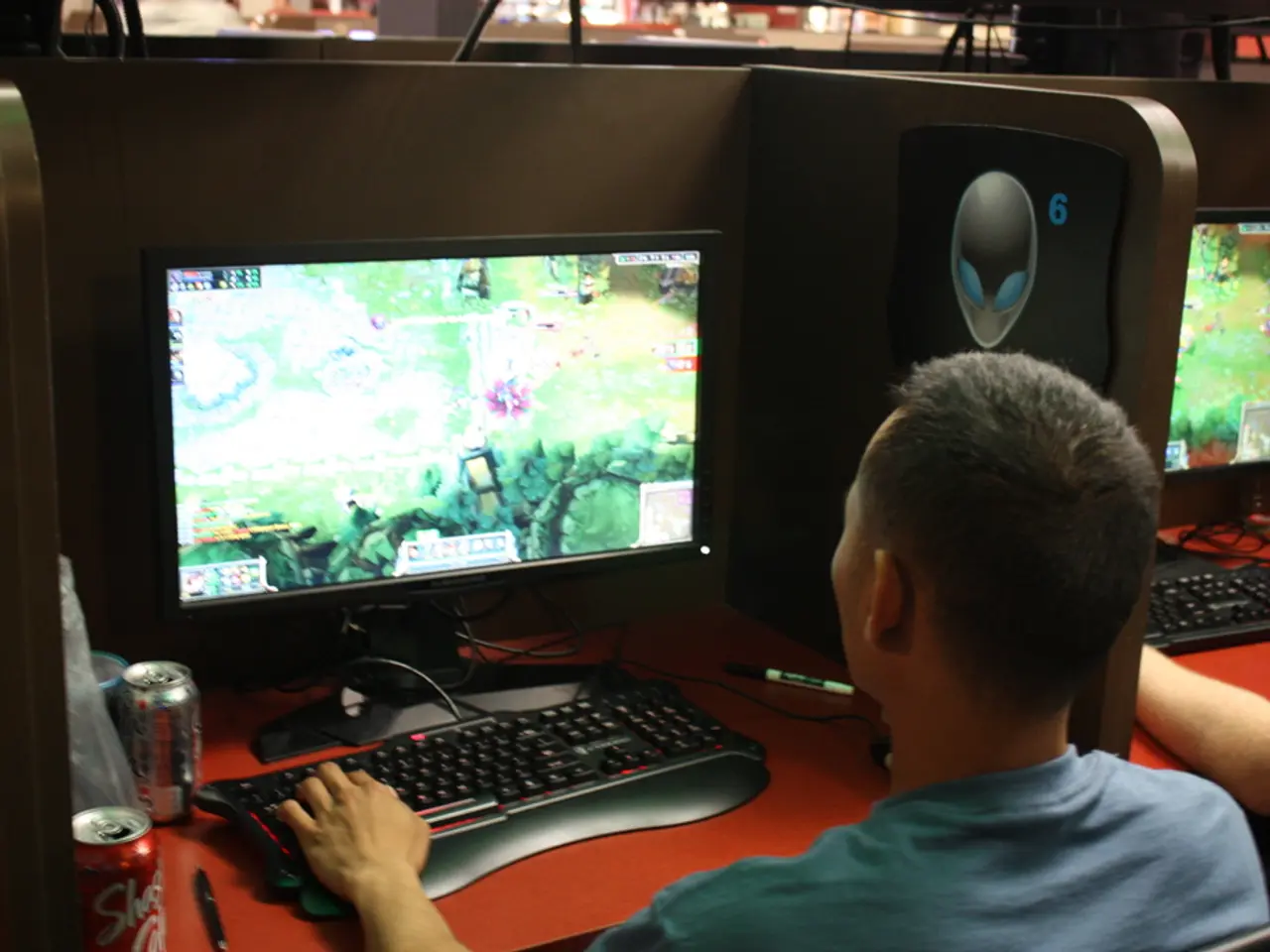Discussing the Potential for Gaming Businesses in Africa: A Virtual Event on Establishing Gaming Ventures
In the ever-evolving world of technology and gaming, Africa presents a promising landscape for businesses seeking expansion. On the 25th of July 2025, iGaming AFRIKA, in partnership with iGaming Consult Africa, is hosting a webinar to provide practical, up-to-date guidance for businesses seeking to expand into African gaming markets.
The event, titled "Starting an Operation in Africa: Demystifying the Licensing Requirements, Costs, and Compliance for Key African Markets," will start at 1:00 PM EAT, 12:00 PM CET/SAST, and 11:00 AM WAT. Registration is available to secure a spot and gain actionable insights that can propel businesses forward.
The webinar features a panel of industry experts, including Jeremiah Maangi, Job Weku, Brian Ondieki, Martin Sack, Zzini Ekeh, Samuel Rowland, and an unnamed moderator. Each expert brings a wealth of experience and insights into the African gaming landscape. The event is intended for entrepreneurs, investors, corporate executives, and anyone interested in establishing or expanding gaming operations in Africa.
The webinar aims to provide insights into the intricacies of establishing gaming operations in Africa. By attending, attendees can learn how to avoid common pitfalls, understand licensing and compliance requirements, develop a strategic plan tailored to each market, and leverage local insights and technology solutions to optimize operations.
Here's a comprehensive overview of the licensing requirements, costs, and compliance for gaming operations in Nigeria, South Africa, Kenya, and Ghana based on the latest available information for 2025:
---
**Nigeria**
The regulatory authority for gaming in Nigeria shifted from federal to state level after a Supreme Court ruling in November 2024. Gaming companies now apply for a Unified Regulatory License (URL) issued by the Federation of State Gaming Regulators of Nigeria (FSGRN), enabling operation across participating states with one consolidated license instead of separate licenses per state. The primary legislation governing gaming is the National Lottery Act 2005, which distinguishes legal games of skill (sports betting, casino gambling) from prohibited games of chance (roulette, dice).
Tax on winnings stands at 5% for residents and 15% for non-residents. Excise duty is 5% on all gambling services including deposits; remote operators pay a discounted 4.5% on deposits due to the introduction of a Remote Operator Permit. Strict compliance with state licensing is required, and Google bans all gambling-related advertising unless licensed locally, specifically recognizing only Lagos State licenses for the Play Store since May 2025. Crypto gambling is illegal; cryptocurrencies cannot be used or accepted for gambling activities.
---
**South Africa**
South Africa is one of Africa’s most mature gaming markets, regulated by the National Gambling Board (NGB) and provincial gambling boards. Licensing involves applying through provincial authorities; licenses are typically divided into categories such as casino, bookmaker, bingo, etc. The cost of licenses depends on the category and province but generally includes application fees plus annual license fees. Compliance requires adherence to the National Gambling Act, including measures on responsible gambling, anti-money laundering, and technical standards. Online gambling is allowed but highly regulated; operators must secure both national and provincial licenses. Cryptocurrency gambling is generally not regulated or permitted under existing laws.
---
**Kenya**
Regulated by the Betting Control and Licensing Board (BCLB), Kenya has a rapidly growing digital economy with a youthful population. Operators undergo rigorous vetting, must pay application fees and annual license fees (exact amounts vary), and comply with standards focusing on player protection, anti-money laundering, and taxation. Online betting is legal and popular, but crypto gambling remains unregulated or effectively illegal.
---
**Ghana**
Overseen by the Gaming Commission of Ghana, Ghana is an emerging market with supportive policies for technology and gaming. Operators must obtain a gaming license; categories include casinos, lotteries, and sports betting. License costs vary by category; annual renewal is required. Strong enforcement of compliance includes player protection, KYC (know your customer), and responsible gambling initiatives. Ghana has gradual movement toward regulating online gambling, often requiring local presence. Cryptocurrency use in gambling is not permitted due to regulatory concerns.
For further details on specific licensing fees or application procedures for South Africa, Kenya, or Ghana, direct contact with their respective gaming authorities or consultation with local legal experts in gaming law is recommended.
Join the iGaming Afrika community forum on Telegram at t.me/igamingafrika to stay updated on the latest news and insights in the African gaming industry. The event is sponsored by several leading iGaming and betting technology companies, including Digitain, EveryMatrix, SOFTSWISS, Kiron Interactive, Raventrack, and 1XBit, a prominent crypto betting site. Don't miss this opportunity to learn, network, and grow your business in the African gaming market!
- The webinar, living up to its title, will discuss the complexities of implementing technology-driven sports betting, cryptocurrency, and casino operations in African markets, particularly in Nigeria, South Africa, Kenya, and Ghana.
- The expert panel, including Jeremiah Maangi, Job Weku, Brian Ondieki, Martin Sack, Zzini Ekeh, Samuel Rowland, and an unnamed moderator, will share insights into leveraging local technology solutions to optimize gaming operations in Africa, with a focus on the changing regulatory landscape for sports betting and cryptocurrency in these key markets.
- With a goal to help attendees develop strategic plans tailored to each market, the webinar will delve into the implications of the Unified Regulatory License in Nigeria, the processes for licensing in South Africa, the vetting procedures in Kenya, and the growing potential of Ghana as an emerging market, all while addressing the legal status of cryptocurrency in these gaming landscapes.




